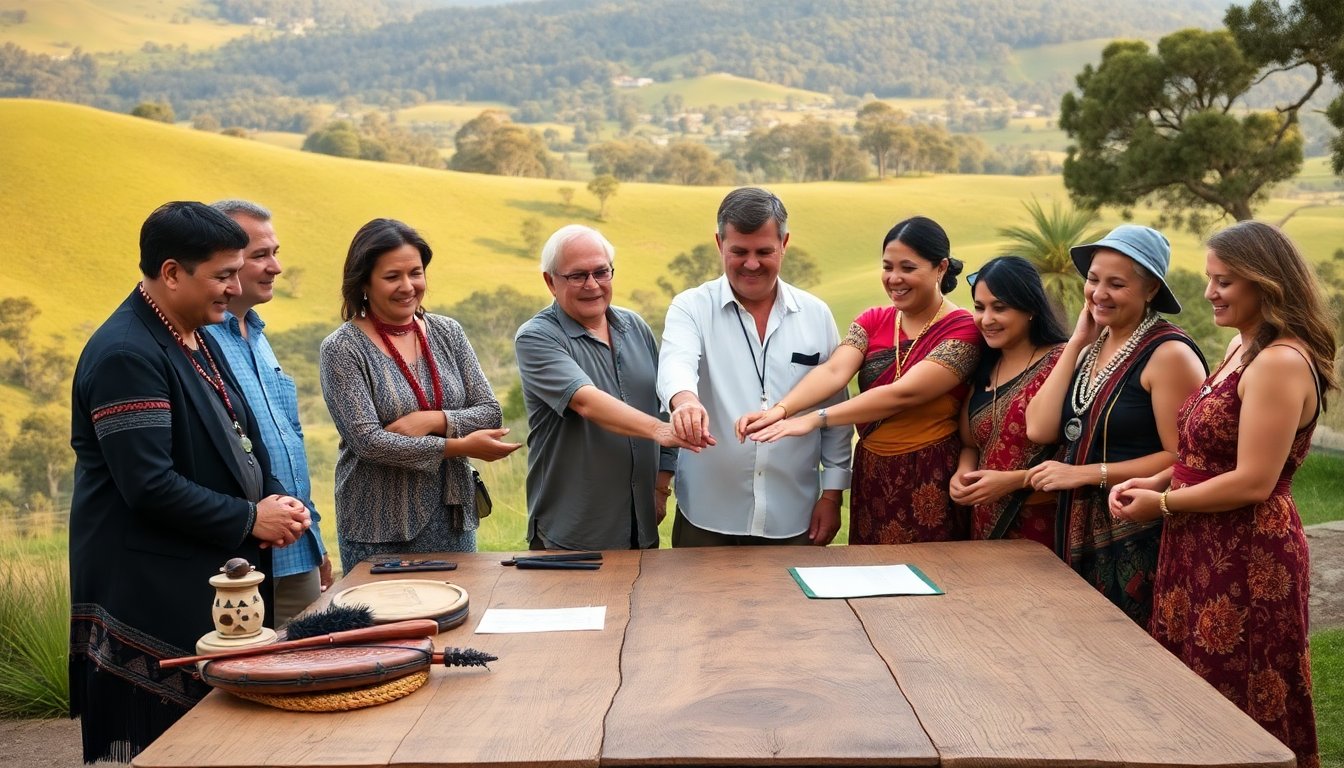Table of Contents
The facts
Victoria has ratified its first treaty with Indigenous peoples, marking a significant milestone in Australia’s journey toward reconciliation. This treaty follows a process that commenced in 2016. It was signed by members of the First Peoples Assembly and endorsed by the state Governor. The agreement is seen as a legal and cultural breakthrough for Indigenous rights in the region.
Reactions
During the ceremonial signing event, Jill Gallagher, a Gunditjmara woman and former commissioner of the Victorian Treaty Advancement Commission, expressed her elation. She stated that this treaty embodies “the story of the Aboriginal people’s resistance.” Gallagher noted that this moment serves as a turning point in Australia’s history, allowing for healing from past injustices and fostering new relationships based on truth, justice, and respect.
A new chapter in Victoria’s narrative
Premier Jacinta Allan stated that the treaty signifies a new chapter for the state, grounded in mutual respect and collaboration. She emphasized the need for partnerships to build a stronger, fairer, and more equitable Victoria for all residents. This signing represents not just an administrative step; it embodies a commitment to developing constructive relationships that recognize and honor the rich heritage of Indigenous peoples.
The historical context of colonization
The context of this treaty highlights Australia’s complex history of colonization, which began in 1788 with the British Empire’s establishment in what is now Victoria. Unlike other colonized nations such as Canada and New Zealand, Australia historically did not negotiate treaties with Indigenous populations. This failure has led to a legacy marked by exclusion and discrimination.
Volker Turk, the United Nations human rights chief, emphasized the treaty’s importance, stating it addresses the ongoing marginalization of Indigenous communities. He noted that the treaty could be genuinely transformative, providing Indigenous peoples a direct voice in the creation of laws and policies that affect their lives. This development is vital for fostering empowerment and inclusion.
The truth-telling journey
The treaty process included the establishment of the Yoorrook Justice Commission, which served as a formal truth-telling body. The commission concluded in June and provided a platform for Indigenous individuals to share their experiences and stories of hardship stemming from colonization. This included poignant testimonies from members of the Stolen Generations, who were forcibly removed from their families under past government policies.
The facts
The Yoorrook Justice Commission’s findings are critical for understanding the impact of colonization on Indigenous communities. It aimed to document the truth about historical injustices faced by these groups.
The consequences
These testimonies have sparked renewed discussions about reconciliation efforts in Australia. They highlight the ongoing need for acknowledgment and reparations for affected individuals and communities.
A referendum in Australia aimed at amending the constitution to establish a permanent Indigenous voice in parliament failed to secure enough support. This initiative was designed to facilitate direct communication regarding issues impacting Indigenous communities. The referendum was a response to the 2017 Uluru Statement from the Heart, which advocated for recognition of Indigenous peoples’ 60,000-year connection to their land, emphasizing that this relationship extends beyond the 200 years of colonization.
The proposed treaty is a significant step toward addressing historical grievances and fostering a more inclusive future for Australia. The First Peoples Assembly is actively engaging with the government, with the expectation that this treaty will enhance dialogue and collaboration, ensuring Indigenous voices are acknowledged and respected in all aspects of society.
Victoria’s journey marks a significant shift, with the treaty’s implications reaching beyond its borders. This agreement could provide a model for other regions in Australia. The focus on creating a fairer society, rooted in respect and acknowledgment of history, has the potential to inspire nationwide change.


